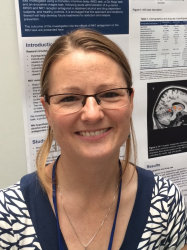BibTex format
@article{McGonigle:2016:10.1177/0269881116668592,
author = {McGonigle, J and Murphy, A and Paterson, LM and Reed, LJ and Nestor, L and Nash, J and Elliott, R and Ersche, KD and Flechais, RS and Newbould, R and Orban, C and Smith, DG and Taylor, EM and Waldman, AD and Robbins, TW and Deakin, JW and Nutt, DJ and Lingford-Hughes, AR and Suckling, J and ICCAM, Platform},
doi = {10.1177/0269881116668592},
journal = {Journal of Psychopharmacology},
pages = {3--16},
title = {The ICCAM platform study: An experimental medicine platform for evaluating new drugs for relapse prevention in addiction. Part B: fMRI description},
url = {http://dx.doi.org/10.1177/0269881116668592},
volume = {31},
year = {2016}
}

